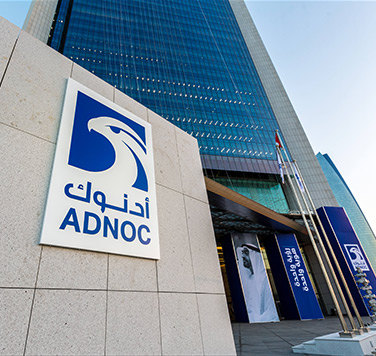
UAE Calls for Positive, Pragmatic Approach to Energy Transition
The United Arab Emirates (UAE) today called for a positive, pragmatic approach to the energy transition and practical climate action to ensure energy security and economic progress. Delivering the opening remarks at the sixth edition of the Atlantic Council Global Energy Forum at Expo 2020 Dubai, His Excellency Dr. Sultan Ahmed Al Jaber, Minister of Industry and Advanced Technology, Special Envoy for Climate Change and Managing Director and Group CEO of Abu Dhabi National Oil Company (ADNOC), explained that current volatility in energy markets is a result of geopolitical tensions, an unrealistic approach to the energy transition and long-term under-investment in oil and gas.
“We are all witnessing first-hand how sensitive energy markets are to geopolitical shocks. Yet, the current volatility in oil prices is the result of a deeper underlying structural issue. Long-term under-investment in oil and gas has left markets more exposed to risks of any kind and wherever they take place.
“According to the IEA (International Energy Agency), annual investment in oil and gas is $200 billion below where it needs to be, and that is just to keep up with demand through 2030. Near-term, we are also seeing markets tighten, with demand up almost 3 million barrels over the last year and is expected to reach pre-pandemic levels by fourth quarter of this year,” H.E. Dr. Al Jaber said.
“In short,” His Excellency added, “the push to divest from hydrocarbons has met a stark reality.”
Speaking in front of a live audience that included H.E. Suhail Al Mazrouei, Minister of Energy and Infrastructure, as well as top energy chief executives and government officials, H.E. Dr. Al Jaber callled for energy transition policies that are “tailored to real-world scenarios.”
“While we fully embrace the energy transition, we need to recognize that policies should be tailored to real-world scenarios. And they should follow the basic rule of progress that if we fail to plan, our plan will fail.
“An unrealistic approach that ignores basic economics will only lead to tighter markets that are more exposed to geopolitical shocks. Divesting from the energy sources that drive the global economy will lead to a systemic supply crunch that erodes economic growth. Put simply, we cannot and we must not unplug the current energy system, before we have built the new one,” H.E. Dr. Al Jaber said.
His Excellency pointed out that policymakers around the world, “including many in Europe,” are now starting to come to terms with these realities.


